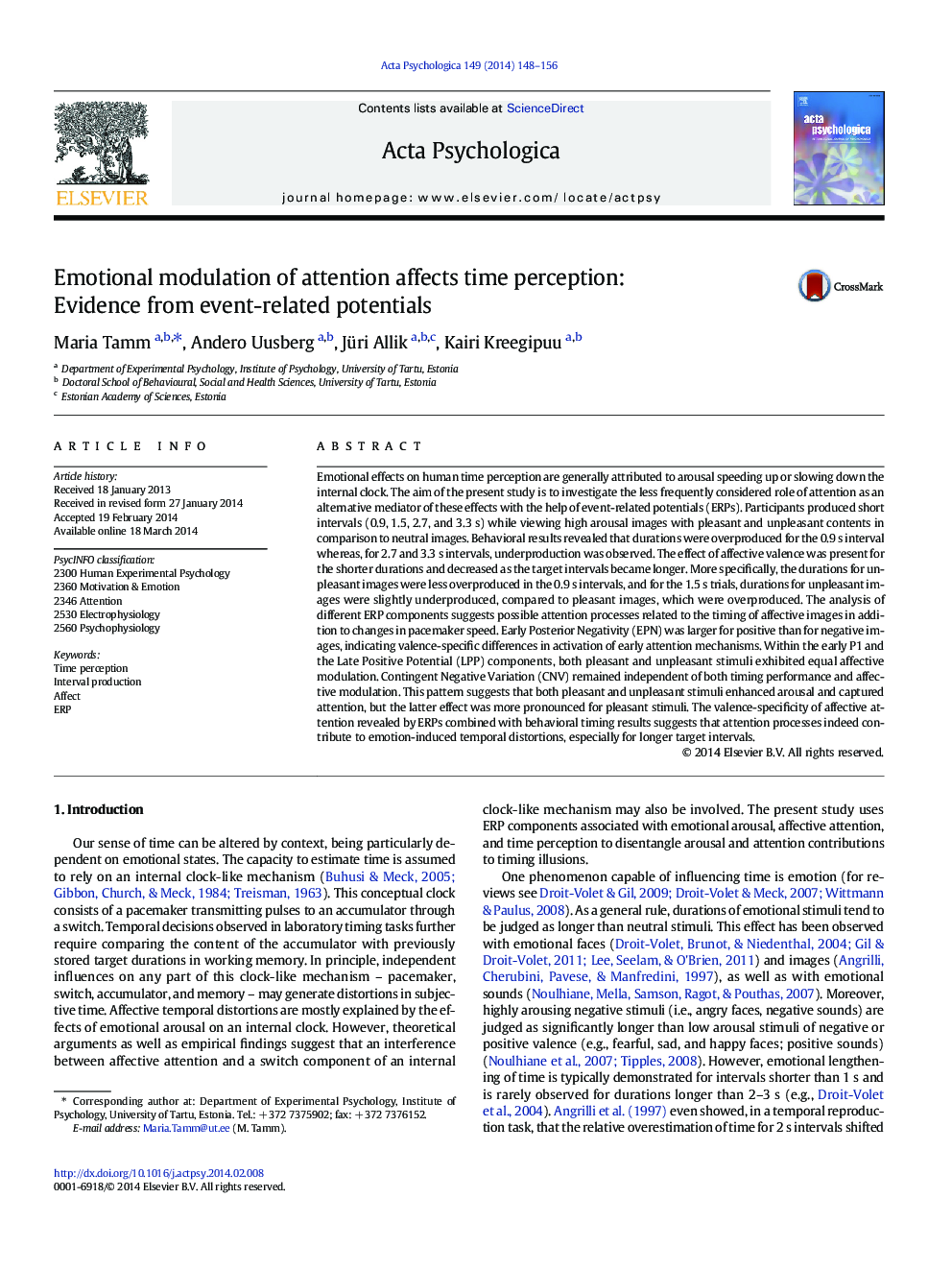| کد مقاله | کد نشریه | سال انتشار | مقاله انگلیسی | نسخه تمام متن |
|---|---|---|---|---|
| 7277712 | 1473609 | 2014 | 9 صفحه PDF | دانلود رایگان |
عنوان انگلیسی مقاله ISI
Emotional modulation of attention affects time perception: Evidence from event-related potentials
ترجمه فارسی عنوان
مدولاسیون هیجانی توجه به تأسف زمان تأثیر میگذارد: شواهدی از پتانسیل مربوط به رویداد
دانلود مقاله + سفارش ترجمه
دانلود مقاله ISI انگلیسی
رایگان برای ایرانیان
کلمات کلیدی
موضوعات مرتبط
علوم زیستی و بیوفناوری
علم عصب شناسی
علوم اعصاب شناختی
چکیده انگلیسی
Emotional effects on human time perception are generally attributed to arousal speeding up or slowing down the internal clock. The aim of the present study is to investigate the less frequently considered role of attention as an alternative mediator of these effects with the help of event-related potentials (ERPs). Participants produced short intervals (0.9, 1.5, 2.7, and 3.3Â s) while viewing high arousal images with pleasant and unpleasant contents in comparison to neutral images. Behavioral results revealed that durations were overproduced for the 0.9Â s interval whereas, for 2.7 and 3.3Â s intervals, underproduction was observed. The effect of affective valence was present for the shorter durations and decreased as the target intervals became longer. More specifically, the durations for unpleasant images were less overproduced in the 0.9Â s intervals, and for the 1.5Â s trials, durations for unpleasant images were slightly underproduced, compared to pleasant images, which were overproduced. The analysis of different ERP components suggests possible attention processes related to the timing of affective images in addition to changes in pacemaker speed. Early Posterior Negativity (EPN) was larger for positive than for negative images, indicating valence-specific differences in activation of early attention mechanisms. Within the early P1 and the Late Positive Potential (LPP) components, both pleasant and unpleasant stimuli exhibited equal affective modulation. Contingent Negative Variation (CNV) remained independent of both timing performance and affective modulation. This pattern suggests that both pleasant and unpleasant stimuli enhanced arousal and captured attention, but the latter effect was more pronounced for pleasant stimuli. The valence-specificity of affective attention revealed by ERPs combined with behavioral timing results suggests that attention processes indeed contribute to emotion-induced temporal distortions, especially for longer target intervals.
ناشر
Database: Elsevier - ScienceDirect (ساینس دایرکت)
Journal: Acta Psychologica - Volume 149, June 2014, Pages 148-156
Journal: Acta Psychologica - Volume 149, June 2014, Pages 148-156
نویسندگان
Maria Tamm, Andero Uusberg, Jüri Allik, Kairi Kreegipuu,
